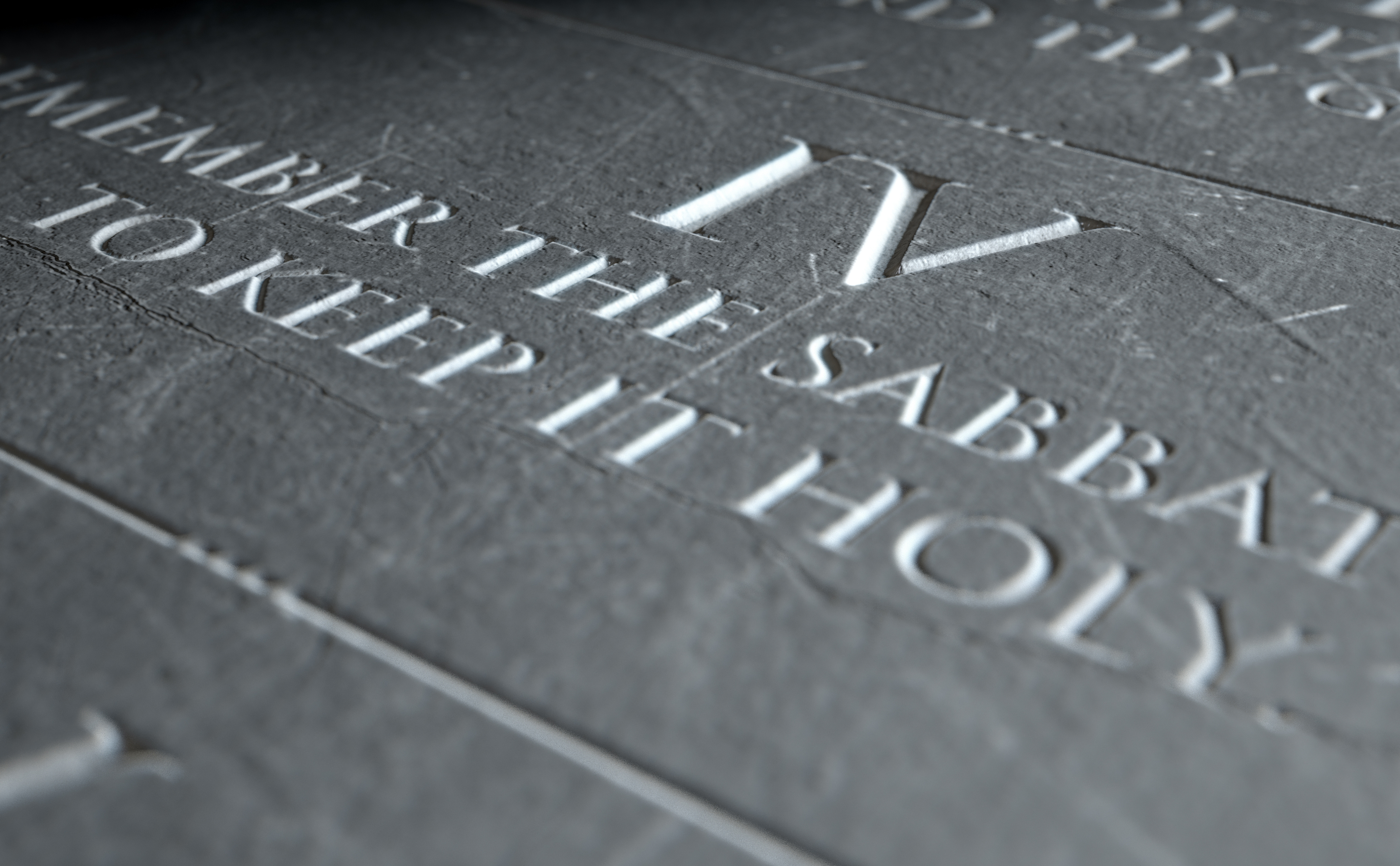
Should Christians Observe the Sabbath?
Published February 8, 2024
The Ten Commandments are viewed by many as the standard of God’s moral law, and rightly so. They have formed the foundation of western morality and legislation for centuries. The Ten Commandments give the basis for true religion, family structure, human sexuality, property rights, proper treatment of one’s neighbor, jurisprudence, and virtue. God has never revealed a more compact but thorough description of what He requires of His human creatures than the Ten Commandments, and we justly recognize their significance not only for old covenant Israel but for all of humanity.
Within the Ten Commandments, however, we find one commandment that seems to stand out from the rest and appears out of place in our modern world and contemporary churches. “Remember the sabbath day, to keep it holy. Six days you shall labor and do all your work, but the seventh day is a sabbath of the LORD your God; in it you shall not do any work, you or your son or your daughter, your male or your female servant or your cattle or your sojourner who stays with you. For in six days the LORD made the heavens and the earth, the sea and all that is in them, and rested on the seventh day; therefore the LORD blessed the sabbath day and made it holy” (Exodus 20:8-11).
While we recognize the other nine commandments are still binding on Christians today (and are all repeated in the New Testament), what should we do with the fourth commandment about the sabbath?
Christians have debated this for centuries. Some heterodox groups have insisted that the sabbath is still in force and that all true Christians observe the sabbath and meet for worship on Saturday. Many within the Protestant tradition believe that the sabbath is now to be observed on the first day of the week, Sunday. For example, the Westminster Confession of Faith says, “[God] has particularly appointed one day in seven, for a Sabbath, to be kept holy unto him: which, from the beginning of the world to the resurrection of Christ, was the last day of the week: and, from the resurrection of Christ, was changed into the first day of the week, which, in Scripture, is called the Lord’s Day, and is to be continued to the end of the world, as the Christian Sabbath.” Others argue that the sabbath day was for old covenant Israel and the “Christian sabbath” is a misunderstanding of Scripture. They insist that Christians are not under the sabbath laws now that Christ and the new covenant have come.
The idea of a perpetual sabbath has strong biblical support. For example, Genesis 2:3 says that “God blessed the seventh day and sanctified it.” God’s sabbath rest occurred long before the Mosaic Law and the Ten Commandments. The seventh day was blessed as a day of rest before sin entered the world and before work became toil. When God instituted the sabbath in the old covenant, He did so on the basis of the created order, that God had blessed the seventh day and made it holy (Exodus 20:11). Several times in the OT, God declared the sabbath day was a perpetual statute (Exodus 31:16; Leviticus 16:31; 24:8). God reiterated the sabbath commandment in Deuteronomy 5:12-15. In the NT, Jesus warned anyone who would annul even the least commandment of the Law (Matthew 5:19), and students of the OT know that the sabbath certainly was not one of the least but one of the most significant commandments in the Law.
However, the NT also makes many statements that indicate the sabbath as Israel observed it under the old covenant had changed. Jesus declared that He is the Lord of the Sabbath, indicating that He determines the sabbath and its regulations (Mark 2:28). Jesus routinely “broke the sabbath” according to the Jews because He did not observe it as they did (John 5:17-18). The Apostle Paul was incredulous that the Galatian Christians had reverted to observing “days and months and seasons and years” (Galatians 4:10). Paul exhorted the Colossian believers that “no one is to act as your judge in regard to food or drink or in respect to a festival or a new moon or a Sabbath day” (Colossians 2:16). Furthermore, none of the churches composed primarily of Gentile converts are given instructions about observing the sabbath. They are given instructions about worship, idolatry, speech, honoring parents, murder, sexual immorality, stealing, bearing false witness, and coveting. The absence of any instructions about the sabbath is conspicuous, especially when one considers how much more likely they would be as Gentiles to understand the immorality of stealing or lying than the regulations of the sabbath.
When we put these two ideas together, we find ourselves with a dilemma. The sabbath day is an eternal concept that predates the Fall of man into sin, but the NT indicates that the way Israel observed it is now passé. Where does that leave us as Christians today? Is Sunday the Christian sabbath, to be observed as Israel observed the sabbath on Saturday? Or are Christians free to disregard the fourth commandment as out of date and obsolete? Neither of these options is correct. Christians celebrate the sabbath, but not the way Israel did, namely, tied to a certain day that delimited certain activities. We celebrate the sabbath as new covenant, not old covenant, believers.
To help bring clarity to what it means for a Christian to celebrate the sabbath, let me draw parallels from a related concept in both testaments, the dietary laws of Israel. While the food laws certainly are not part of the Ten Commandments, one can hardly identify them as unimportant to Israel or mere appendages to the more significant parts of the old covenant. As late as Acts 10, the Apostle Peter was still observing the dietary laws of the old covenant. Yet we read in Mark 7:19 that Jesus declared all foods clean. The context where Jesus declared all foods clean is significant. The topic was purity and defilement. The Pharisees, the crowds, and the disciples were all convinced that what defiled a person was eating unclean foods. Jesus, however, stated the opposite: “That which proceeds out of the man, that is what defiles the man” (Mark 7:20). After declaring all foods clean, Jesus explained the real purpose of the statute regarding dietary laws. The dietary laws were a temporary ordinance that pointed to an eternal reality, namely, that God demands His people be free from defilement. Once Jesus arrived as the perfect Son of God, undefiled and separate from sinners, the dietary laws had served their purpose as pointers to purity. Jesus now serves as the standard of purity. God’s desire for His people to be pure has not changed, but the shadow of the dietary laws is no longer necessary now that the substance has arrived in Christ.
Paul makes precisely the same point in Colossians 2:17, when he says that dietary and sabbath regulations are “things which are a mere shadow of what is to come; but the substance belongs to Christ.” The food and sabbath laws were pointers to Christ. They were never meant to be an end in themselves, as if God’s people would always observe the sabbath as Israel did under the old covenant. Rather, they were shadows of the body, which is Christ. Now that Christ has come, He has not done away with purity or rest. To the contrary, He has clarified and magnified their meaning. We are no longer pure because we avoid certain foods but because we abide in Christ. We no longer find our rest by celebrating the seventh day but by resting in Christ every day through faith .
The writer of Hebrews explains the true meaning of celebrating the sabbath, “For the one who has entered His rest has himself also rested from his works, as God did from His” (Hebrews 4:10). How does someone enter God’s rest? “We who have believed enter that rest” (Hebrews 4:3). We rest when we cease striving to justify ourselves in the sight of God through our works and trust in the once-for-all, finished work of Christ on the cross.
The sabbath day points us to the Lord Jesus Christ, and He Himself is our sabbath rest. Those who have put their faith in Him have rested from their works and enjoy the sabbath rest God had always designed for His people. When we celebrate Christ’s finished work on the cross, we celebrate the sabbath as God intended. That’s a sabbath we can celebrate every day of the week.




0 Comments